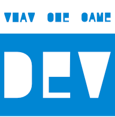I have been thinking a LOT about the following idea for about a year now, and when I finally brought it up to my girlfriend and brother, it got them thinking, too. I just wanted some insight on other people's thoughts on the subject, and maybe a little guidance as to where to start in making this a reality. Okay, so that's enough of a lame introduction, let me get down to the concept.
I used to play this game called Beat Hazard that was a twin stick shooter. The thing that made this game stand out for me was that it would use information from your music as a variable within the game. As your MP3 would play in the background, the level of the bass frequencies would be used to determine the strength of your laser, which you would fire at approaching asteroids and enemy ships. So, songs that had more bass (dance tracks, dubstep, maybe even death metal) would give you a more powerful weapon. This was shown visually, as well, in that the more bass-heavy the music was, the more bright and vivid all of the graphics were. It is one of the only games I've found that uses music as a variable, without being a music game (such as Guitar Hero and the like).
This gets me thinking, though, about how many ways one could use music to control different aspects of a game, and how much more diverse that game would then be. One example I keep coming to is using the tempo of a song to control the number of enemies that are generated in a world. Another idea, which to me is far more intriguing, would be to use a 3D visual of the music to generate the terrain that one was walking on. An example of this is HERE, but it isn't exactly what I'm referring to, since my idea would analyze the file first and generate a stationary landscape. But when I saw the video I have linked there, it gave me the idea that all of this is possible. I hope this makes sense, because I honestly have tried looking for information on this, and have come up empty-handed, and I honestly don't know how I would search for it. I am going OUT OF MY MIND to figure this out.
Just one more example that gets me thinking is THIS. Even if you could take the 3d visualization from a track, and use it to create the waves in a body of water in the background of a game, I'm sure someone could see how intriguing that would be.
The main idea, though, is that music has lots of characteristics, from tempo, to volume, to peak frequency, to pan, and many beyond. Games have many variables that we would use to control them, such as number of enemy sprites, speed of character, background visuals, and obviously many more. I want to get down to using music of someone's choice to control those variables. I see this as a great idea, because it takes a basic game, and gives it infinite possibilities. If you get tired of playing the same level over and over, then just change the soundtrack, and play through something potentially completely different.
I'm not very experienced with any specific code. I have dabbed in numerous languages, and definitely have no trouble grasping logic. I am just looking for someone to point me in the right direction, or team up with me on a project which I am willing to devote likely all of my free time to, because I think it is an amazing idea. Maybe it's been done. I would love some more examples of where it has been done, because I would love playing this type of game. Maybe let me know which languages support the sort of libraries I would need for a project like this, so I can get to work. Any help is GREATLY appreciated. Thanks.








